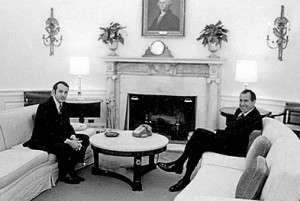I work in four countries and for the same number of colleges. Much of my time involves garnering frequent-polluter miles, by bus, air, rail, auto, and air-conditioning.
As I write, I’m finishing an assignment at the Universidad del Norte in Barranquilla, where a program in Comunicación Social y Periodismo (Social Communication and Journalism) has been located for the last two decades. I was fortunate enough to inaugurate the program’s doctorate four years ago, the first of its kind in Colombia, and now I work there twelve weeks a year.
I was in Barranquilla during the 2012 summer Olympics, nursing a broken heart, and was struck by the fact that when Colombia won medals, a televised telephone link was immediately set up between the President, the successful athletes, and their mothers. The head of state spoke to participant and parent alike, courtesy of TV. It showed how much success on the world stage mattered.
I’m present here now during both the Women’s World Cup of football and the Copa América. As I write, the Colombian women are celebrating a 2-0 defeat of France. The French had previously disposed of England for the umpteenth time since I was a teenager dodging violent sexual harassment at St Paul’s School (you can read a smidgeon of the story here. It doesn’t mention the man that we had to contend with).
But the main story in Barranquilla is the Copa. A game is kicking off between Argentina and Paraguay, and all attention, on both the official web site and Colombia’s Carocol television network, is on the putative tax cheat, Lionel Messi. Messi will soon face trial on charges of major fraud, is the physical product of massive intakes of growth hormones from his pre-teen years (http://bleacherreport.com/articles/1492546-lionel-messi-and-hgh-the-truth-about-the-best-footballer-in-the-world), and is regarded by most critics as the greatest player of all time.
The commentary style here is to speak like an Australian race caller rather than the dry and boring delivery that characterizes cricket or baseball on television. In the 1980s, I fell asleep every time the supposedly saintly Richie Benaud spoke at the SCG and nothing could rouse me in the 2000s when the equally soporific and similarly sanctified Vin Scully made the Dodgers unwatchable from Venice Beach.
The excitement is infectious when it comes to Latin American football commentary on television, however cliché that may be. The trilling ‘R,’ well explained here by a Putonghua speaker detailing her struggle to attain it (https://youtube.com/watch?v=O7oMwO5PVbg) adds aesthetic pleasure to the rushed-and-rarely-hushed vocal style.
Of course, the cry of ‘Goooooool…de Argentiiiina’ is essential.
Such urgency and passion compromise the mad claims, endlessly uttered, that pictures tell the story in television, whereas in radio one must compensate by painting images with words. Such statements are nonsense and tiresome. It’s part of the pleasure and excitement to have commentators capture and embody the sensations felt by audiences. It’s theater and identification.
In psy-function treatments of sport on television, there is a fascination with audience relaxation, relief, aggression, and entertainment—Aristotelian categories about drama endowed with the marvel of modern, scientific labels. A personal favorite is the “Sport Fan Motivation Scale” (later contested by the “Motivation Scale for Sport Consumption”). Such research typically finds that men watch more media sport than women, are more animated by it, and are likelier to define themselves through it. Sport’s value to men is deemed to derive from experiencing easy ephemeral closeness without the demands of ongoing intimacy.
So glad folks make a living from such profoundly surprising results.
These nostra generally extrapolate from English-only studies undertaken in the Global North. They essentialize spectatorship via an account of male sports fans as immature, or at least biologically determined—driven by testosterone levels that shift with team success and failure. But in Colombia, as per my first visit when the under-20 male World Cup was on here, women look just as involved, even if the psy-scale won’t allow them to be.
Ratings show women in the Global North are interested, too: they comprise half of ESPN’s US viewers. And Canada’s TSN, which guaranteed advertisers that it could ‘deliver the male’ twenty-five years ago, now promises that ‘[s]ponsorship programs on TSN.ca can be tailored to your target audience’.
As we all know, sport on TV has many, many issues, especially to do with gender politics. Fox Soccer is now, blissfully, in the dustbin of history thanks to al-Jazeera’s beIN SPORTS. Its commercials provided textual hints about the loser network’s attempts to match viewers to advertisers, concentrating remorselessly on regaining and sustaining hair-growth and hard-ons, losing and hiding pimples and pounds, and becoming and adoring soldiers and sailors.
The hyper-masculinity characteristic of newsrooms, and the specific biases of sporting departments, remain issues, however. In the US, there are 48 male sportscasters for every female, and 94% of sports editors are men, as are 90% of their assistants. The corollaries of inattention to female fans are clear. And in Australia, the bourgeois media continue to discriminate: in 2008-09, 9% of non-news TV was dedicated to women’s sport. The figure was 86% for men.
But women are becoming more desirable targets for advertisers and more desirous sporting subjects as watchers and players. And in Barranquilla, the passion in the streets and on the screens is something else.
I almost forgot. The Argentina-Paraguay game ended two-all. The putative tax cheat/human-growth hormone product/ greatest player in the history of the world scored from a penalty but was otherwise largely unseen.
Toby Miller is Emeritus Distinguished Professor at the University of California, Riverside, the Sir Walter Murdoch Professor of Cultural Policy Studies at Murdoch University, Profesor Invitado at the Universidad del Norte, Professor of Journalism, Media and Cultural Studies at Cardiff University/Prifysgol Caerdydd and of the Institute for Media & Creative Industries at Loughborough University in London. He can be contacted at tobym69@icloud.com and his adventures scrutinized at www.tobymiller.org.





